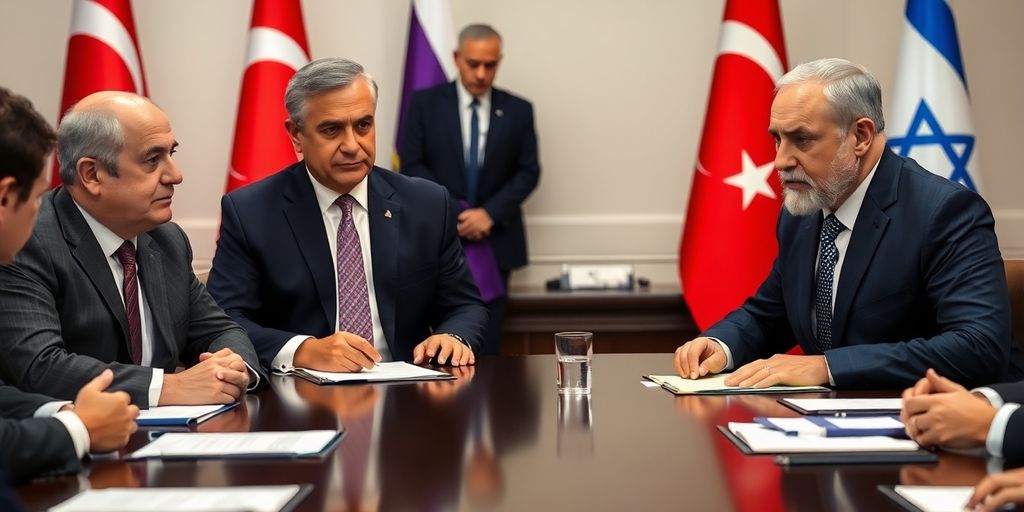Recent tensions between Turkey and Israel have escalated following a series of Israeli airstrikes in Syria, targeting military positions allegedly backed by Turkey. As both nations navigate this complex geopolitical landscape, discussions are underway to establish a deconfliction line to prevent further confrontations.
Key Takeaways
- Turkey’s Foreign Minister Hakan Fidan emphasizes the desire to avoid confrontation with Israel in Syria.
- Israeli airstrikes have reportedly killed Turkish nationals, heightening tensions.
- Both nations are exploring diplomatic channels to manage their military operations in Syria.
Background Of The Conflict
The ongoing conflict in Syria has seen various regional powers vying for influence, with Turkey and Israel emerging as significant players. Following the fall of the Assad regime in December 2024, Turkey has sought to expand its military presence in Syria, which Israel perceives as a direct threat to its security.
In early April 2025, Israeli forces conducted airstrikes on the T-4 airbase and other military sites in Syria, claiming these were necessary to counteract Turkish military entrenchment. Reports indicate that these strikes resulted in the deaths of at least three Turkish nationals, further inflaming the situation.
Turkey’s Position
Turkish officials, including Foreign Minister Hakan Fidan, have publicly stated that Turkey does not seek confrontation with Israel. Fidan remarked that Syria belongs to the Syrians and criticized Israel’s military actions as detrimental to regional stability. He expressed concerns that Israel’s strikes are undermining the capabilities of the new Syrian administration, which Turkey supports.
Fidan’s comments reflect Turkey’s broader strategy of maintaining influence in Syria while avoiding direct military conflict with Israel. He indicated that any agreements between the new Syrian government and Israel are a matter for them to decide, suggesting a willingness to coexist despite tensions.
Israel’s Response
In response to Turkey’s military ambitions in Syria, Israeli officials have made it clear that they will not tolerate any hostile forces in the region. The Israeli Defense Forces (IDF) have intensified their operations, targeting strategic military assets to send a strong message to Ankara.
Israeli airstrikes have focused on critical infrastructure, including runways and radar systems at military bases, which Turkey is reportedly looking to utilize for its operations. This military-first approach by Israel aims to deter Turkish expansion and maintain its strategic advantage in the region.
Diplomatic Efforts And Future Implications
As tensions rise, both Turkey and Israel are exploring diplomatic avenues to prevent further escalation. Analysts suggest that establishing a deconfliction line could help manage military operations and reduce the risk of accidental confrontations.
The situation remains fluid, with both nations aware that continued hostilities could lead to broader regional instability. The international community is closely monitoring developments, as the implications of this conflict extend beyond the immediate region, potentially affecting global geopolitical dynamics.
In conclusion, the ongoing discussions between Turkey and Israel highlight the delicate balance of power in Syria. As both nations navigate their interests, the potential for conflict remains, underscoring the need for careful diplomacy and strategic restraint.
Sources
- Turkish FM Hakan Fidan says Turkey wants no Syria-Israel conflict, The Jerusalem Post.
- Israel-Turkey Tensions Rise After Deadly Strikes in Syria, The Media Line.
- Turkey says it wants no confrontation with Israel in Syria, bne IntelliNews.
- Turkey and Israel are becoming deadly rivals in Syria, The Economist.
- Israel’s attacks in Syria meant as warning to Turkey as tensions escalate, Fox News.






